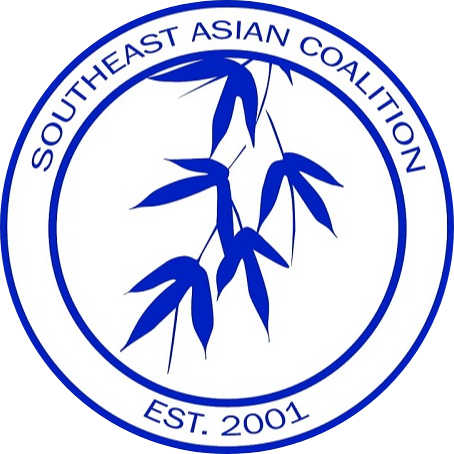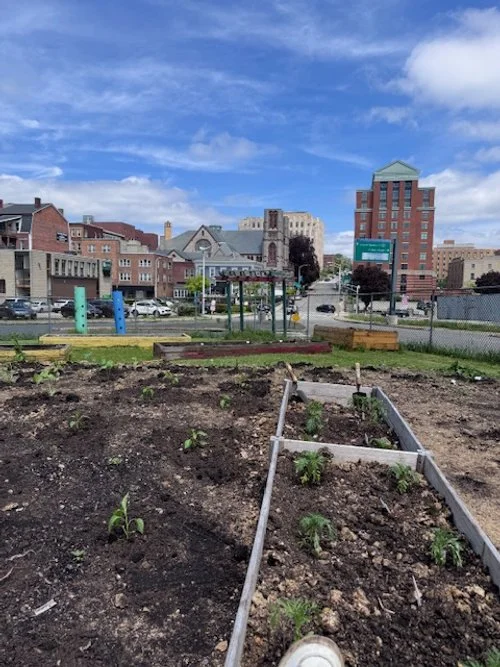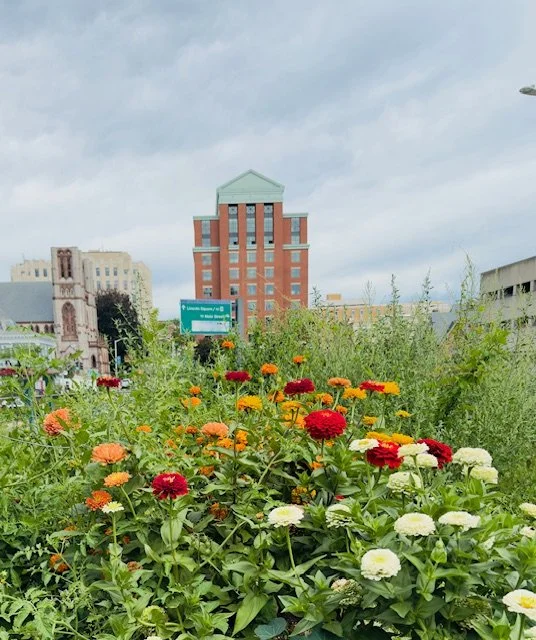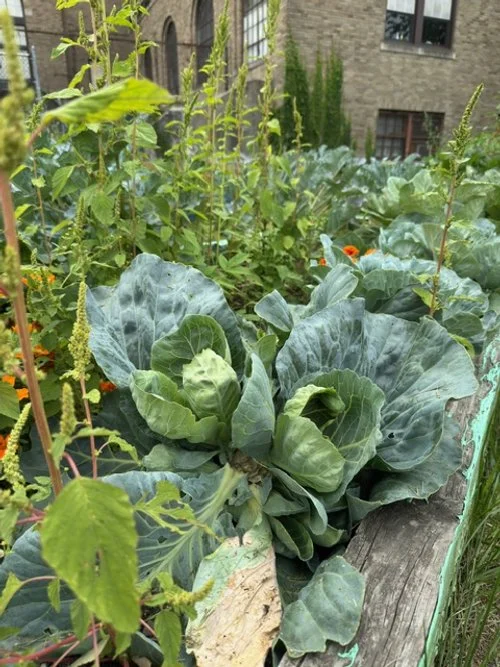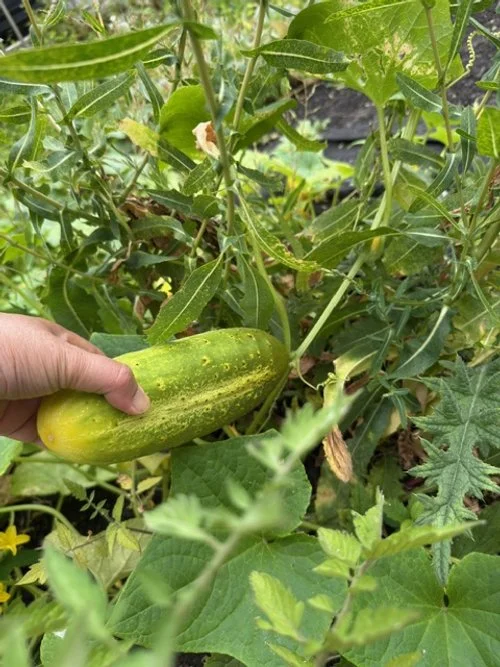Urban Garden Food Security: Not Pinterest-Perfect, But Feeding Us Anyway
I once dreamed of a beautiful, orderly urban garden. You know—the kind you see in glossy magazines, where tomatoes are plump and picturesque, cucumbers hang neatly on tidy trellises, and everything looks like they belong in a farm-to-table cookbook. Reality check: our tomatoes look like they were cross-bred with baby aliens, the cucumbers and vines have taken over like a jungle, and the whole thing looks less like a garden and more like a beautiful, chaotic mess. And yet… it’s ours. If these gardens could talk, they’d probably scream. We might not make it into Edible Magazine, but here’s the truth: food isn’t just about appearances. It feeds both the body and the soul. A garden—even a wild one—reminds us how miraculous it is to put a seed in the ground and get nourishment in return. And in communities facing food insecurity, every tomato, cucumber, and even mushroom can make the difference between going hungry and feeling full. A big shout-out to: #WheelerFoundation for funding our initiative #HanoverInsuranceGroup for giving us so many seeds (which might have contributed to the chaos as staff and volunteers happily planted them everywhere), and to the incredible #volunteers who spent hours weeding, planting, and then weeding again. Maybe—just maybe—a famous gardener or designer will stumble across this post and offer us a little help to tame our jungle. Until then, we’ll keep tending, laughing, and harvesting. Here’s to the gardens that feed us in more ways than one. #UrbanGarden #FoodJustice #CommunityPower #FoodSecurity #UrbanFarming #GrowTogether #FoodFeedsTheSoul #MessyButBeautiful
CULTURAL URBAN GARDEN PROJECT
Worcester is full of empty parking lots that have no economic value and diminish the beauty of our city. The Southeast Asian Coalition of Central MA decided to take a holistic approach to this matter. We’ve teamed up with multiple generations of Southeast Asians to transform these spaces into lively, bright and flourishing greens. After cultivating vegetables that are native to Asia, our volunteers utilize the food for traditional dishes as part of Healthy Living and Eating Habits and Mental Wellness programs.
What challenge does this address?
Depression, Isolation, Stress, & Loneliness
Homesickness
Minimal Friendship or In-Person Encounters
Lack of Physical Activity
Disconnect Between Generations
BENEFITS for elders and youth
Improvement of Mental Health
Community Engagement
Sense of Home and Belonging
Encourages Healthy Diet & Lifestyle
Mentorship on a Multigenerational Level
Alleviation of Stress
Archive Traditional Asian Dishes
Did you know that SEACMA has not one, but TWO urban gardens? All produce goes to support food security in Worcester County!
